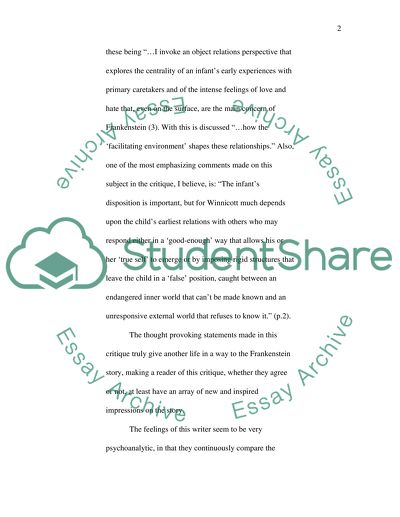Cite this document
(“Examining Literary Criticism: Mary Shelleys Frankenstein Essay”, n.d.)
Examining Literary Criticism: Mary Shelleys Frankenstein Essay. Retrieved from https://studentshare.org/literature/1510314-examining-literary-critisism
Examining Literary Criticism: Mary Shelleys Frankenstein Essay. Retrieved from https://studentshare.org/literature/1510314-examining-literary-critisism
(Examining Literary Criticism: Mary Shelleys Frankenstein Essay)
Examining Literary Criticism: Mary Shelleys Frankenstein Essay. https://studentshare.org/literature/1510314-examining-literary-critisism.
Examining Literary Criticism: Mary Shelleys Frankenstein Essay. https://studentshare.org/literature/1510314-examining-literary-critisism.
“Examining Literary Criticism: Mary Shelleys Frankenstein Essay”, n.d. https://studentshare.org/literature/1510314-examining-literary-critisism.


